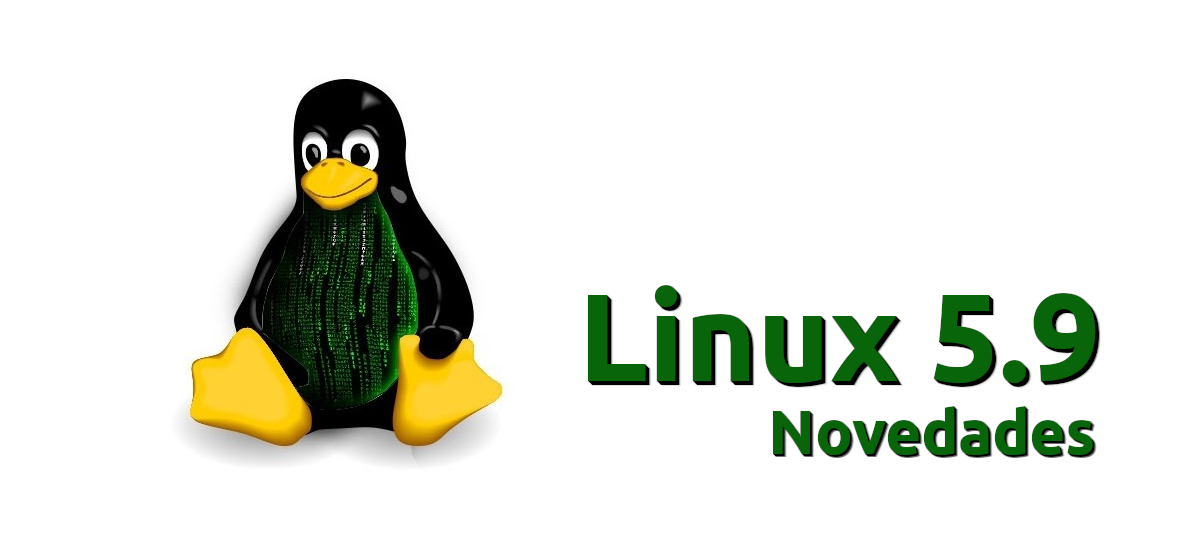
This time there were no surprises, and the opposite would have meant having encountered a tragic flaw that has never occurred in the recent history of the Linux kernel. So, a few hours ago Linus Torvalds launched la stable version of Linux 5.9, the one that happens to 5.8 which will include Groovy Gorilla and that it comes with initial support for AMD RDNA 2 graphics cards, which is nice but some users will need to update manually if they don't want to be left unattended.
As usual, most of the news are related to hardware support. Therefore, and as I always say, unless our equipment is not working well, I would not recommend the manual update and I would trust the company that offers us the operating system, in the case of most of our readers, Canonical. Below you have the list of the most outstanding novelties that have arrived with Linux 5.9.
Linux 5.9 Highlights
- Initial support for AMD RDNA 2 graphics cards in the form of the Sienna Cichlid and Navy Flounder.
- Intel Rocket Lake graphics support is also connected, building on existing Gen12 code.
- Intel has added more DG1 Xe graphics card support code, although this is still a work in progress.
- Intel FSGSBASE support has stuck after years of work with potential performance benefits dating back to Ivy Bridge era CPUs and AMD CPUs.
- Various file system enhancements such as performance work on Btrfs to FSCRYPT, inline encryption, and secure TRIM for F2FS.
- NVMe ZNS support has also been combined for namespaces zoned with the NVMe 2.0 specification.
- Initial set-up job for IBM POWER10 processors.
- Continuous support work USB4.
- Support for building the Linux x86 32-bit kernel using the LLVM Clang compiler, complementing the Clang support already for the Linux kernel on AArch64 and x86_64.
- ARM / ARM64 devices now default to the CPU frequency scaling slider Schedutil to make use of the scheduler utilization information to make more accurate decisions about the CPU performance state, similar to the Intel P-push. State and to use Schedutil by default.
- A safeguard to prevent shims from using GPL-exclusive symbols which, in turn, are being used by proprietary kernel modules.
Groovy Gorilla will not use this kernel
As we have mentioned, Ubuntu 20.10 Groovy Gorilla will not use this kernel, staying on Linux 5.8 that was released about two months ago. And it is that the next version of Ubuntu will arrive next Thursday, October 22, and Canonical likes to take this easy and use a kernel that is already more proven than the one that is released approximately a week before a new version of its operating system .
The problem may be the owners of a AMD RDNA 2 graphics card, since the initial support is not a complete support, and also this support was not in Linux 5.8. Therefore, and as we have explained, these users, if they encounter hardware problems, should update to Linux 5.9 manually, which can be done with the Ukuu tool as explained in this archive article. It will also be recommended that you do the same when 5.10 is officially released in a couple of months, as support will improve.
The problem should be less for users of an operating system whose development model is Rolling Release, such as Arch Linux or Manjaro. These distributions, at least Manjaro, also usually include a tool to change the kernel without having to have expert knowledge and can be done quickly and easily. Ubuntu users can do something similar, but with the aforementioned ukuu tool which has user interface (GUI). In any case, Linux 5.9 has already arrived officially.
Hey.
Ukuu is no longer available except by purchasing the license. But someone has forked the unlicensed version (which is no longer available), and called it the Ubuntu Mainline Kernel Installer.
https://github.com/bkw777/mainline